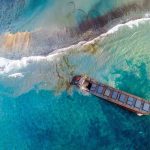Vessel Owners and Charterers (among others) can limit liability for loss or damage to property based on the tonnage of the vessel involved in the incident. There are two international conventions that are frequently applied, the 1976 Convention on Limitation for Marine Claims (“LLMC 1976”) and the 1996 Protocol to the 1976 LLMC, which provide for significantly different limits.
Summary of the issue
In Enemalta PLC v The Standard Club Asia Limited [2021] EWHC 1215 (Comm), a P&I Club, the Standard Club Asia Ltd (“the Defendant”), challenged the exclusive jurisdiction of the English Court provided for in a Letter of Undertaking (“the LOU”), and sought an order that the English Court had no jurisdiction to hear the claim or should stay the proceedings in favour of the Singapore courts. The Defendant’s Member, the vessel owners, had commenced proceedings to establish a limitation fund in Singapore.
The strategic significance of the issue was that the limit of liability under the LOU was fixed at a sum of just over EUR 21.5 million, whereas the maximum liability under a limitation fund constituted under the LLMC 1976 applicable in Singapore, would be limited to EUR 5.77 million.
In essence, the key issue before the English Court was whether the limitation proceedings in Singapore could override the exclusive jurisdiction of the English Court as provided for in the LOU.
Background
On 23 December 2019, Malta suffered a nationwide power outage caused by damage to an underwater High Voltage Alternating Current (HVAC) connector cable, owned by Enemalta PLC (“the Claimant”), in the Sicily Channel. The Claimant believed that the damage was caused by the vessel M/V “DI MATTEO” (“the Vessel”), whose registered owners were domiciled in Singapore. The Claimant subsequently commenced proceedings in Malta seeking damages from the owners of the Vessel in relation to losses arising from the above incident.
On 3 January 2020, the Defendant, on behalf of the owners of the Vessel, provided security to the Claimant by way of the LOU for a value said to be equivalent to the maximum tonnage-related limitation figure under the 1996 Protocol to the LLMC 1976 applicable in the UK, albeit on an ‘inclusive of interest and costs’ basis. The LOU was expressly subject to English law and the exclusive jurisdiction of the English High Court.
The owners of the Vessel commenced proceedings in the High Court of Singapore seeking to establish a limitation fund for the purpose of limiting their liability to a lower value under the LLMC 1976. In those Singapore proceedings the Vessel owners sought an order from the Court that (consistent with the provisions of the LLMC 1976) upon the establishment of the limitation fund any existing security given by or on behalf of the Vessel owners would be released forthwith. The only such security in existence was understood to be the LOU issued by the Defendant Club.
Where the order sought by the Vessel owners in the Singapore limitation proceedings ‘[attempted] to invade the English Court’s exclusive jurisdiction’ in relation to the LOU, the Claimant sought declarations from the English Court that:
- All and any disputes arising over the validity of the LOU issued by the Defendant should be determined solely in the English High Court of Justice, in proceedings between the Claimant and Defendant in England, applying English law;
- The LOU remained a valid and binding contract between the Claimant and Defendant and was not null and void;
- Should the Defendant wish to dispute the continuing validity of the LOU, it should do so solely by bringing proceedings in the English Court and any contrary proceedings brought by or at the behest of the Defendant would constitute a breach of the LOU; and
- Should any contrary declaration to point (ii) above be made by the Singapore Court in those Singapore proceedings, it would not affect the validity of the LOU under English law, which remained the applicable law of the LOU
The issues before the English Court
The Defendant challenged the jurisdiction of the English Court because it argued, principally, that the Singapore Court had the sole and exclusive jurisdiction to make an order under Article 13.2 of the LLMC 1976 in the circumstances of the limitation proceedings commenced in Singapore.
Article 13.2 of the LLMC 1976 reads as follows:
“After a limitation fund has been constituted in accordance with Article 11, any ship or other property, belonging to a person on behalf of whom the fund has been constituted, which has been arrested or attached within the jurisdiction of a State Party for a claim which may be raised against the fund, or any security given, may be released by order of the Court or other competent authority of such State…”
The Defendant’s case was that it was for the Singapore Court to decide whether it had jurisdiction under Article 13.2 to order the release of a letter of undertaking. This was because, the Defendant argued, the question of whether the Singapore Court had jurisdiction under Article 13.2 was not a dispute arising under the LOU but was one that arose under the LLMC 1976, which was within the exclusive jurisdiction of the Singapore Court.
The Claimant disagreed and argued this should be rejected because:
- The parties to the LOU had agreed that the English Court was the exclusive forum for dealing with all disputes that arose under the LOU; and/or
- Article 13.2 of the LLMC 1976 was inapplicable to the LOU because (a) the UK was not a party to the LLMC 1976; (b) no limitation fund had yet been established in Singapore; (c) the Singapore Courts had no power under Article 13.2 to make an order in relation to the LOU; and (d) the LOU was not located within the jurisdiction of the Singapore Court.
The English Court was required to determine whether an order made by the courts of a state party to the LLMC 1976, such as the Singapore Court in this instance, would have the effect of releasing a security which was not subject to either the laws or jurisdiction of that or any other state party to the LLMC 1976, such as the LOU in this instance.
The decision of the Court
The English Court dismissed the Defendant’s application and the jurisdiction challenge failed.
Citing The ICL Vikraman[1], the Court made clear that it was “better than seriously arguable” that the LOU in this case was not a security within the jurisdiction of the Singapore Court. It also deemed that an English Court applying English law would conclude that the LOU should be treated as located in England, being the place which the parties had agreed would have exclusive jurisdiction in respect of the said LOU. England was not a party to the LLMC 1976, pursuant to which the limitation proceedings had been commenced in Singapore. To the extent that physical location was relevant, the LOU was physically located in Malta which was also not a party to the LLMC 1976. As a result, the Singapore Court had no jurisdiction to order its release because the LOU was not a security within the jurisdiction of a state party to the LLMC 1976.
The Court considered that the question whether any order of the Singapore Court under Article 13.2 of the LLMC 1976 had the effect of releasing the Defendant from its LOU would be a dispute to be determined in England according to English law by virtue of the exclusive jurisdiction agreement in the LOU. The Court believed that there was also no principled reason the English Court would not have exclusive jurisdiction in relation to such a dispute, just as it would over an enforcement claim, following judgment in the Maltese proceedings. The exclusive jurisdiction agreement governed all disputes between the parties concerning the LOU, such that the parties were taken to have agreed on a single tribunal resolving all disputes arising under their contract[2].
The Court accepted the Claimant’s submission that the English Court should not decline jurisdiction to hear a claim by a party seeking a declaration as to its rights under a contract subject to the English Court’s exclusive jurisdiction (i.e. the LOU) in deference to a decision that may be made by a court in another jurisdiction under a convention to which the UK was not a party.
Crucially, the LOU was an autonomous contract between the Claimant and the Defendant P&I Club (not the Vessel owners which had commenced the Singapore limitation proceedings) and they had chosen that this contract should be subject to English law and jurisdiction. The present proceedings, relating to the effect (if any) of an order of the Singapore Court on the liability of the Defendant P&I Club under this autonomous contract contained in the LOU, were entirely separate to the right of the Singapore Court to make whatever order it considered appropriate in the limitation proceedings brought by the Vessel owners.
In summary, whilst the Vessel owners were free to seek to constitute a limitation fund in Singapore and it was up to the Singapore Court to administer the fund, and decide (consistent with the provisions of the LLMC 1976) what other security provided should be released, it remained a question for the English Court whether any such order would indeed have the effect of releasing the subject LOU, where the parties to the LOU had by agreement chosen such matters should be determined exclusively by the English Court.
Comment
The English Court’s decision in this case demonstrates the importance of exclusive jurisdiction agreements in security issued by way of a Letter of Undertaking, together with highlighting the Court’s willingness to give effect to such provisions contained in a contract into which the parties have entered freely.
At the outset of any matter it is crucial to consider the impact which jurisdiction (and any limitation that may arise as a consequence of the jurisdiction) may have on the prospects of a successful recovery and the potential liability of the recovery target. Professional experienced legal advice on this issue is essential. A maritime claimant’s recovery prospects will often be significantly increased by obtaining properly drafted and robust security by way of a letter of undertaking issued by a reputable P&I Club at the earliest opportunity following the incident giving rise to their claim.
Source: Hellenic Shipping News






